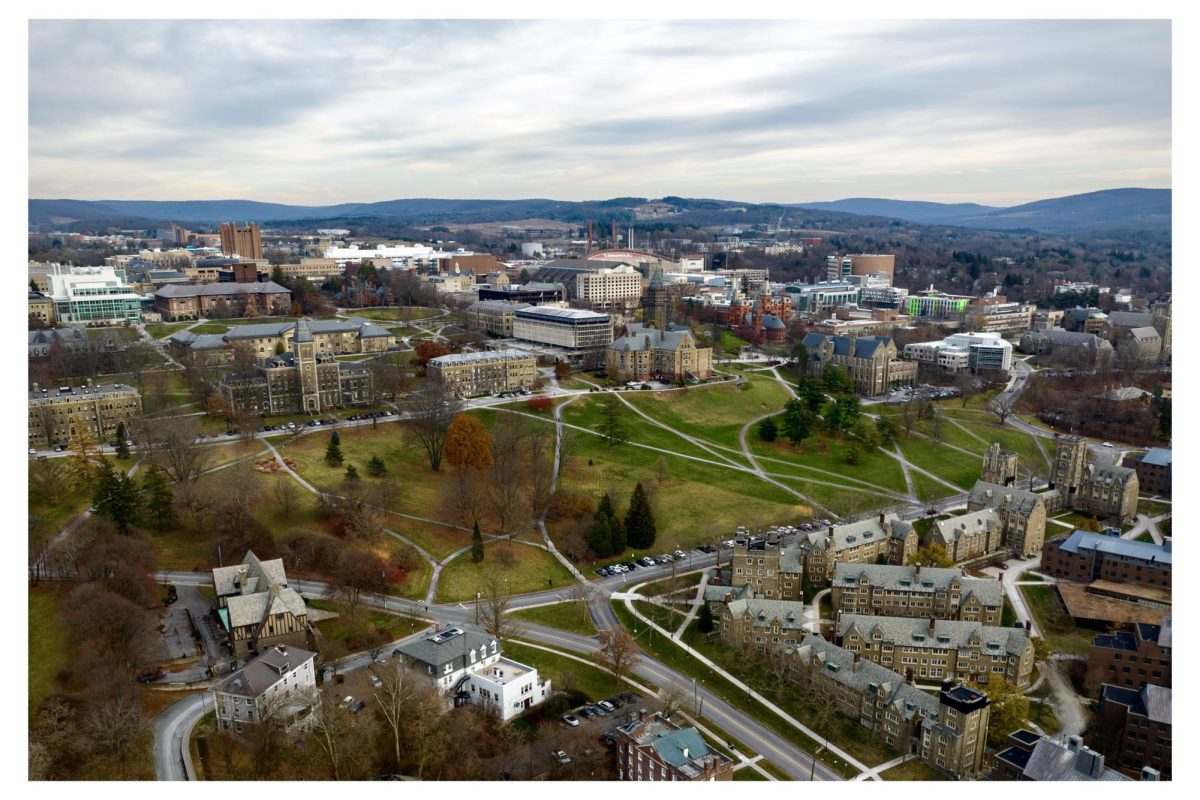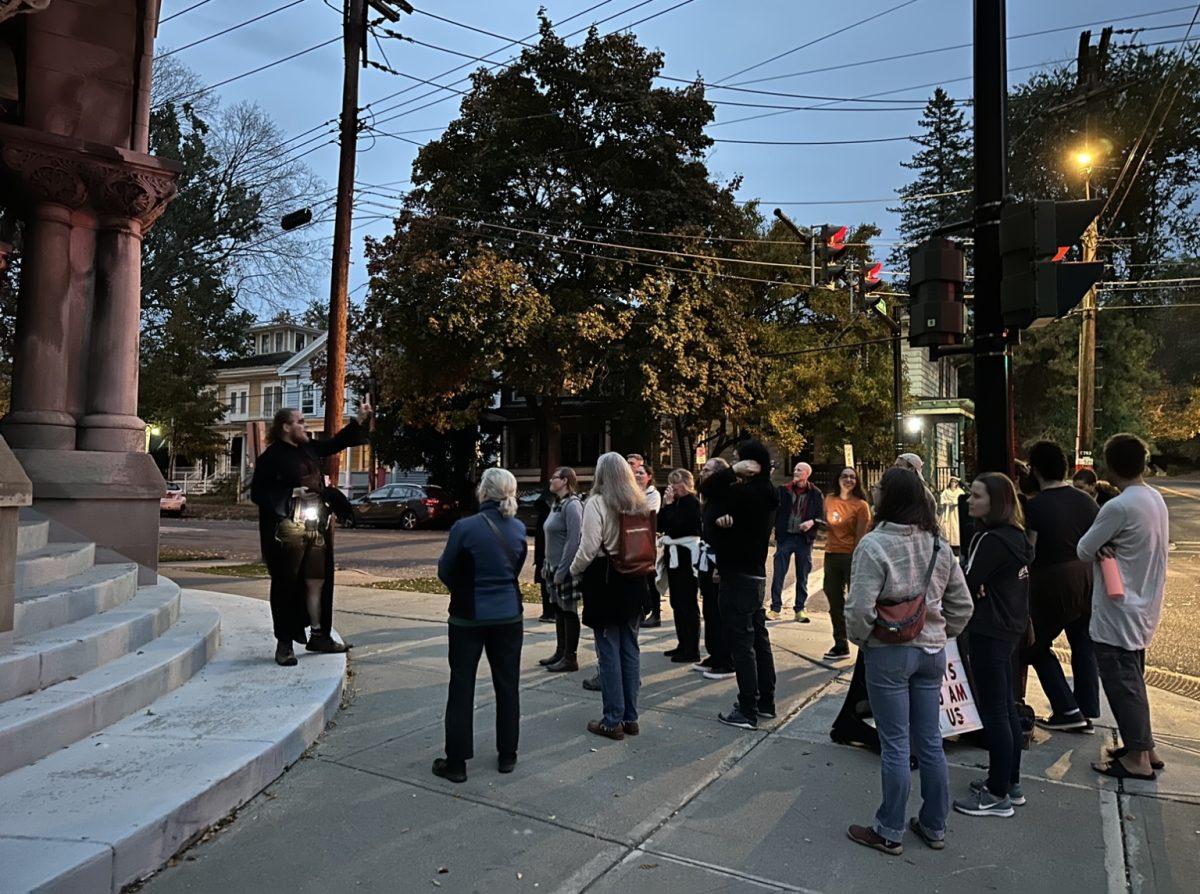On March 24, shoppers at Ithaca’s member-owned GreenStar Cooperative Market encountered a table upon entering the store, and leaflets being handed out by the tablers proclaiming: ‘Say NO to boycott, say YES to peace.’ The scene stirred up some controversy, to say the least.
The tablers, members of the recently-formed Ithaca Coalition for Unity and Cooperation in the Middle East (ICUC-ME), had arranged a line of photos featuring Israeli technology, agriculture, and other modern accomplishments of the state of Israel; each photo was accompanied with explanation describing a positive aspect of Israel, and each prominently featured the words “This Is Zionism,” in big block letters.
“Why don’t you also have a photo of a dead Palestinian child?,” an angry woman asked the ICUC-ME representatives.
The group formed in response to a referendum campaign by the Ithaca Committee for Justice in Palestine, to boycott Israeli products in conjunction with the international Boycott, Divestment and Sanctions (BDS) movement, “until [Israel] complies with international law and Palestinian rights.” The local campaign was launched February 1.
“For BDS to bring its rhetoric to Greenstar, our local co-op, is very disturbing and is not what we think belongs in a natural food store,” the co-chair of ICUC-ME, Linda Glaser said.
But the committee that brought the referendum sees it as the perfect setting because, “GreenStar takes a stand on issues of social justice; GreenStar in fact boycotts most products from China because of the human rights abuses committed by the Chinese government,” said Ariel Gold, one of the founders of the Ithaca Food Justice for Palestine Campaign (IFJPC). “It’s really a value of our Ithaca community and of the GreenStar co-op community to stand for justice.”
There is also another reasoning on boycotting products in the conflict, the choice to boycott specific goods, from specific locations.
“The Israeli operations on the West Bank are illegal,” Todd Gitlin, an American scholar and professor at Columbia University who has written extensively on the conflict, said. Gitlin said that he boycotts products that come from the West Bank, because it is perfectly appropriate to “boycott the bad things,” but doesn’t believe in punishing all of Israel by boycotting all Israeli products.
The proposed GreenStar referendum includes four separate points which members may vote on, one of which supports only boycotting products from the West Bank. Only one referendum option advocates a boycott of all Israeli products, thus allowing member-owners to make the same distinction as Gitlin when showing their support for the boycott.
Gold, who is Jewish, and her family visited the West Bank for three weeks during late December and early January and lived in the homes of multiple Palestinian families. After arriving back in Ithaca, she and other local activists committed to making an impact from Ithaca on the lives of Palestinians began organizing the 2015 campaign for “food justice.”
In March, IFJPC began reaching out to other members of GreenStar, circulating a letter asking for support on one or more of the three separate referendum items that have been proposed.
With 100 petition signatures, the committee was able to formally file a petition in early March to the advisory council, which will decide if the referendum will proceed to a full member vote.
While GreenStar takes no political positions as an organization, the cooperative is “committed to democratic operation and constructive dialogue among our membership, [and has] a long history of allowing member-owners to bring their concerns forward, through referendums, tabling at the stores, and other means,” GreenStar’s Council president, 12th Moon, said in a statement on March 2.
“For me, doing the work around Palestine solidarity and specifically the Boycott, Divestment and Sanctions movement is the most important thing I can do,” said Gold. “This is the most important value that I can pass down to [my children] as Jews in this time of occupation.”
“The BDS movement has always been an anti-Jewish movement,” Cornell law professor William Jacobson, who has been leading the charge against BDS, and specifically Gold, on his blog Legal Insurrection, said in an interview with WRFI in February. “Now, a lot of the people who participate in it don’t understand that history; they think it’s just about social justice, it’s just about helping the Palestinians, but that’s not what it is.”
Yet many of the BDS movement’s most vocal supporters are themselves Jewish, and Jews have supported the movement since the call first went out from Palestinian civil society in 2005, according to Phyllis Bennis, a fellow at the Institute for Policy Studies in Washington, DC, and a longtime critic of Israel. “There have always been Jews at the center of it,” Bennis said. “It’s not about Jews, it’s about Israeli policy, and it’s very clear that it calls for a boycott, divestment and sanctions––not just against Israel ‘because we don’t like Israel’––but until Israel stops three sets of violations: the violations inherent in the occupation of the ’67 territories; the violations inherent in resisting or rejecting a just solution [for] the [many Palestinian] refugees; and the violations inherent in the discrimination that is legally present in Israeli law against Palestinian citizens of Israel.”
Unless the council rejects the referendum, which it may only do “if it would be in violation of [coop] bylaws, or if it would be fiscally or legally irresponsible,” according to the statement from 12th Moon, it will go to a full member vote in November.







